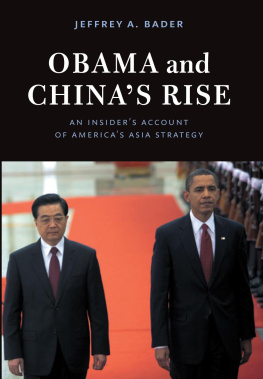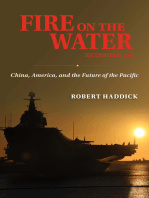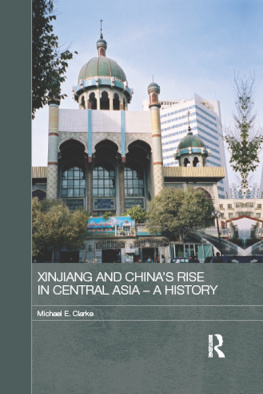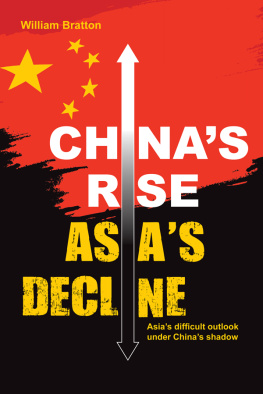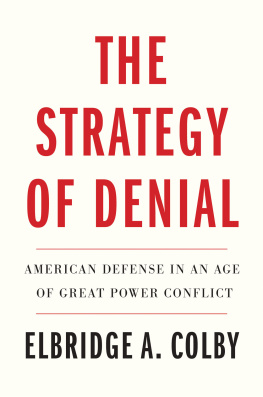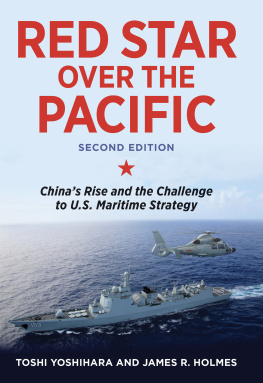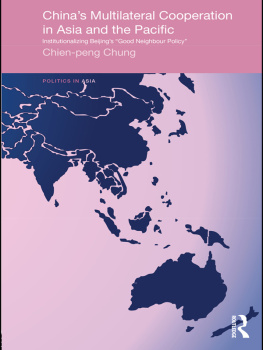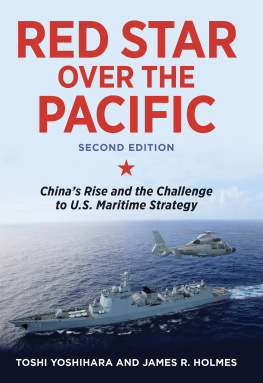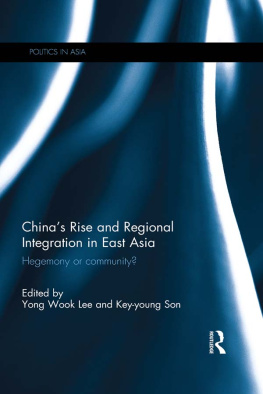Future presidents will need to find the right balance in China policy, so as to maintain America's strength and watchfulness but not fall into the classic security dilemma, wherein each side believes that growing capabilities reflect hostile intent and responds by producing that reality. I believe that President Obama struck that balance.
From Obama and China's Rise
I n 2005, veteran diplomat and Asia analyst Jeffrey Bader met for the first time with the then-junior U.S. senator from Illinois. When Barack Obama entered the White House a few years later, Bader was named the senior director for East Asian affairs on the National Security Council, becoming one of a handful of advisers responsible for formulating and implementing the administration's policy regarding that key region. For obvious reasonsa booming economy, expanding military power, and increasing influence over the regionthe looming impact of a rising China dominated their efforts.
Obama's original intent was to extend U.S. influence and presence in East Asia, which he felt had been neglected by a Bush administration fixated on the Middle East, particularly Iraq, and the war on terror. China's rise, particularly its military buildup, was heightening anxiety among its neighbors, including key U.S. allies Japan and South Korea. Bader explains the administration's efforts to develop stable relations with China while improving relationships with key partners worried about Beijing's new assertiveness.
In Obama and China's Rise, Bader reveals what he did, discusses what he saw, and interprets what it meantfirst during the Obama campaign, and then for the administration. The result is an illuminating backstage view of the formulation and execution of American foreign policy as well as a candid assessment of both. Bader combines insightful and authoritative foreign policy analysis with a revealing and humanizing narrative of his own personal journey.
Jeffrey A. Bader is the John C. Whitehead Senior Fellow for International Diplomacy with the John L. Thornton China Center at the Brookings Institution. He returned to Brookings after serving in the Obama administration from January 2009 to April 2011 as senior director for East Asian affairs on the National Security Council. Prior to joining the Obama team, he was a senior fellow in Foreign Policy at Brookings, where he also served as the first director of the Thornton Center.
Cover photograph Bloomberg/Getty Images
Jacket design by Beth Schlenoff
OBAMA AND CHINA'S RISE
An Insider's Account of America's Asia Strategy
JEFFREY A. BADER
BROOKINGS INSTITUTION PRESS
Washington, D.C.
ABOUT BROOKINGS
The Brookings Institution is a private nonprofit organization devoted to research, education, and publication on important issues of domestic and foreign policy. Its principal purpose is to bring the highest quality independent research and analysis to bear on current and emerging policy problems. Interpretations or conclusions in Brookings publications should be understood to be solely those of the authors.
Copyright 2012
THE BROOKINGS INSTITUTION
1775 Massachusetts Avenue, N.W., Washington, D.C. 20036
www.brookings.edu
All rights reserved. No part of this publication may be reproduced or transmitted in any form or by any means without permission in writing from the Brookings Institution Press.
Library of Congress Cataloging-in-Publication data
Bader, Jeffrey A.
Obama and China's rise : an insider's account of America's Asia strategy / Jeffrey A. Bader.
p. cm.
Summary: Detailed evaluation from an insider of the Obama administration's efforts, between 2009 and spring 2011, to develop a stable relationship with China while countering China's rise by reinforcing and initiating relationships with other nations in the regionProvided by the publisher.
Includes bibliographical references and index.
ISBN 978-0-8157-2242-7 (hardcover : alk. paper)
1. United StatesForeign relationsChina. 2. ChinaForeign relationsUnited States. 3. Obama, BarackPolitical and social views. 4. United StatesForeign relations2009-5. United StatesForeign relationsAsia. 6. AsiaForeign relationsUnited States. I. Title.
E183.8.C5B216 2012
327.73051dc23 2012000300
9 8 7 6 5 4 3 2 1
Printed on acid-free paper
Typeset in Adobe Caslon
Composition by R. Lynn Rivenbark
Macon, Georgia
Printed by R. R. Donnelley
Harrisonburg, Virginia
PREFACE
AS AN AMATEUR historian in my younger days, I was amused, and slightly irritated, by Voltaire's epigram, History is a pack of lies we play on the dead. The weighty, thoughtful, heavily footnoted history tomes I read, admired, and learned from as a graduate student seemed to deserve a more sympathetic characterization. Having now spent close to thirty years working on foreign policy for the U.S. government in various capacities, I have a greater appreciation of the insight of Voltaire's epigram, at least insofar as historians try to write about the actions of government officials of long ago. In this book I hope I can help future historians avoid the pitfalls that Voltaire warned about.
It is hard enough when you are inside an institution to understand how decisions are made. To do so at a distance of years is doubly hard. While distance in time and space may increase the ability to form dispassionate judgments, it also removes one from the richness of the context in which people argued over a proper course. It is tempting to attribute decisions with large consequences to large historical forces. Sometimes they are made in response to much narrower sets of concernspersonal, political, or bureaucratic.
The internal memoranda on which historians inevitably rely heavily may not reflect the realities behind decisions, particularly in the current atmosphere of perpetual anxiety over the risk of leaks and tendentious characterization of an administration's motives. It is often better to cloak a position in written high-mindedness than to acknowledge the quid pro quos or the political trade-offs involved.
In addition, all senior policymakers have drummed into them the risks of committing certain kinds of reasoning or calculations to paper. The e-mail saying Let's discuss is shorthand for We're not going to correspond about this subject because what we might say in trying to reach a sensible decision could be held against us. This means that the written record will invariably be incomplete, and sometimes misleading. These habits of communication have run through every administration I have worked with since 1975. The only new element is the increasing likelihood of unwelcome and politically driven public scrutiny in the modern age of digital communication and ubiquitous media and blogs with a stake in pouncing on every supposed story, which has induced even greater caution within the government.
I hope in writing this book to simplify the task of future historians more gifted than I in understanding what went on in one important phase of Barack Obama's presidency, namely, his policy toward Asia at a time when China was rising. My account is based on my direct experiences and recollections, not on secondhand accounts or on documentary study. I have not had to see things through a filter, beyond the limits of my own experience and prejudices. My accounts of events may be incomplete because of these limitations, but I hope they will be a useful primary source for people trying to understand these events.


